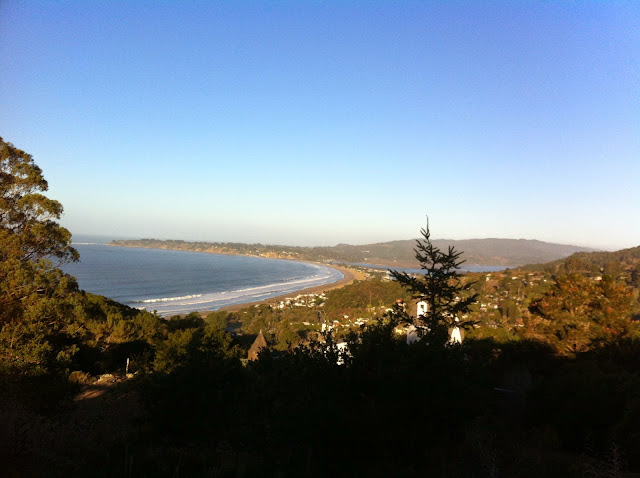Four Seasons Permaculture Design Certification at the Regenerative Design Institute
I'm excited to say that after an extended search for a permaculture program that works with my schedule, last October I joined a year-long course offered by the Regenerative Design Institute out in Bolinas. This means that for one Saturday a month, I get to travel to lovely Bolinas and gather with a group of people who are also wading slowly into the vast waters of sustainable, integrated ecology and design.
 |
| Stinson and Bolinas Beaches |
 |
| Greenhouse at the gardens |
So far, we've covered the ethics and principles of permaculture, soil, and water, but by the end of each day, it is clear how deep a person can go with these topics. Technically, you could get an entire master's degree in soil science and water management alone, so I'm taking each nugget of wisdom and skill as an invitation to explore.
We've also had a lot of time for hands-on work, like digging swales to "teach water how to walk" or move it away from unwanted areas; sheet mulching, which involves laying cardboard and mulch down to aerate and improve soil; and planting cover crops. During our first week, we were also asked to complete a Bioregional Quiz that asked basic yet surprisingly difficult questions about how well a person knows the place where they live. For example:
- Can you trace the water you drink from precipitation to tap?
- What is the name of the creek or river which defines your watershed?
- Where does your garbage and sewage go?
- Name one of the first spring wildflowers to bloom in your area.
- Name five native trees in your area.
- What were the primary subsistence techniques of the cultures(s) that lived in your area before you?"

To help answer this last one, I've pulled my former boss, Malcolm Margolin's, book, The Ohlone Way, off the shelf and have been reviewing my 4th grade California history lessons. The quiz is eye-opening, and my answers were sparse at best. It's an important reminder of how disconnected we all are from our natural environments and the resources that we pull from it (and dump back into it) on a daily basis. I can't wait to find out the answers to the 29 questions on this list! (Luckily, we have all year to complete it.)
Maybe I'll post some of those findings as well. Until then, time to go read!
 |
| View from the top of the gardens |
 |
| Our group and leader, Penny Livingston |
Comments
Post a Comment